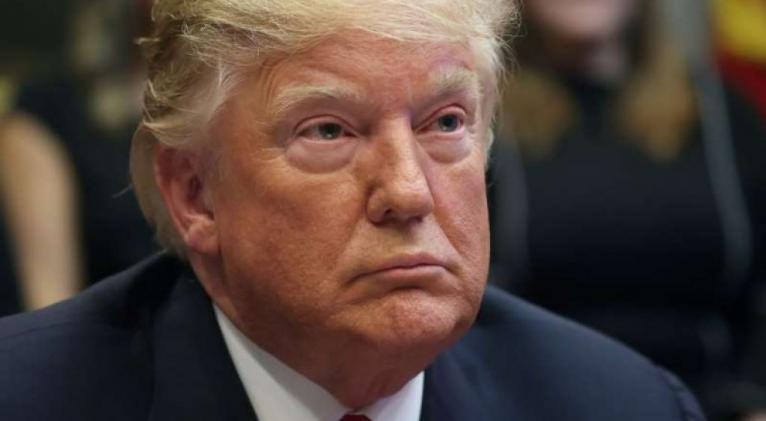Taylor, whose closed-door testimony is set for Tuesday, could be one of the most important witnesses yet. He is expected to be followed later in the week by a senior State Department diplomat, White House officials and a Pentagon Ukraine policy expert, according to an official working on the inquiry.
Taylor's text messages with U.S. Ambassador to the European Union Gordon Sondland have surfaced as a central thread in the probe by House of Representatives Democrats into allegations that Trump improperly pressured Ukraine to investigate Democratic presidential rival Joe Biden and his son.
The inquiry is focused on whether Trump may have withheld $391 million in U.S. security aid to Ukraine earlier this year in an effort to get newly elected President Volodymyr Zelenskiy to open an investigation into the Bidens and into a discredited theory that Ukraine may have meddled in the 2016 U.S. election.
At the center of the probe, which initially stemmed from a whistleblower's complaint, is a July 25 call in which Trump pressed Zelenskiy for his cooperation.
Trump has acknowledged many of the central facts related to the call, maintaining that none of it amounted to wrongdoing or a demand for a "quid pro quo," a Latin phrase meaning a favor in exchange for a favor.
"This Scam going on right now by the Democrats against the Republican Party, and me, was all about a perfect phone call I had with the Ukrainian President," Trump said on Twitter on Sunday night. "He’s already stated, NO PRESSURE!"
The impeachment inquiry could lead to the Democratic-led House passing formal charges - known as articles of impeachment - that would prompt a trial in the Senate on whether to remove Trump from office. The Senate is controlled by Trump's fellow Republicans, who have shown little inclination toward removing him.
'NO QUID PRO QUO'S'
Democratic lawmakers will be looking for Taylor to shed light on communications with Sondland, who testified last week.
"I think it’s crazy to withhold security assistance for help with a political campaign,” Taylor, the U.S. charge d'affaires in Ukraine, said in a text to Sondland.
"The President has been crystal clear no quid pro quo's of any kind," Sondland responded by text after speaking to Trump.
Sondland said in written testimony, however, that Trump told senior U.S. officials to deal directly with his personal lawyer, Rudy Giuliani, about U.S. policy on Ukraine, raising concern that foreign policy was being outsourced to a private citizen.
Acting White House Chief of Staff Mick Mulvaney told reporters on Thursday that Trump's decision to withhold the aid to Ukraine was linked in part to his desire for an investigation by Kiev into a debunked theory that a Democratic National Committee computer server was held in Ukraine.
Mulvaney walked back the comments in a statement the same day and on Fox News on Sunday again denied a quid pro quo.
Senator Lindsey Graham, a Republican who frequently allies himself with Trump, told Axios it would require more evidence to persuade him to change his mind on impeachment.
"If you could show me that, you know, Trump actually was engaging in a quid pro quo, outside the phone call, that would be very disturbing," he said. He stressed, however, that from reading the contents of the call, it was "not a quid pro quo to me."
Due to testify in closed session on Wednesday are Philip Reeker, the acting assistant secretary of state for Europe, and Michael Duffey, associate director for national security programs at the White House Office of Management and Budget.
Deputy Assistant Secretary of State Laura Cooper, who oversees the Pentagon's Ukraine policy, and Alexander Vindman, a Europe adviser on the National Security Council, are scheduled to testify on Thursday, the official involved in the inquiry said.















Add new comment